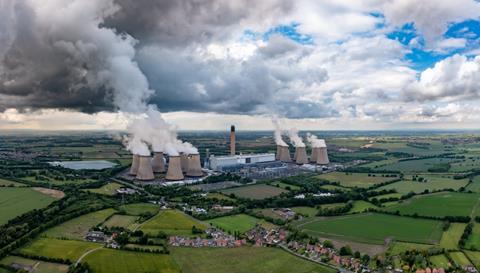UK has failed to ramp up energy efficiency measures on level of European peers
The UK’s built environment and transport network are holding back the country’s efforts to reach its net zero goals, according to a report by KPMG.
In its latest Net Zero Readiness Report, the professional services firm said early adoption of renewables had helped the country make significant headway on targets, but that progress has now been slowed by challenges in harder to abate sectors.
Despite almost halving greenhouse gas emissions (GHG) since 1990, the UK has struggled to cut emissions in transport, buildings and industry, which made up 60% of all GHG emissions in 2022.

Simon Virley, vice chair and head of energy and natural resources at KPMG UK, said the UK had shown “you can decarbonize while still growing” but said “the next part may be a lot harder”.
KPMG identified the decarbonisation of heating as one area where the government was failing to meet its ambitions.
The UK still has some of the least energy efficient homes in Europe, with around four-fifths heated with natural gas.
The desired 600,000 heat pump installations a year by 2028 is currently not on track to be met, with the actual installation figure currently around a ninth of this target.
Virley said the UK’s past achievements were “no guarantee of future success” and added that other countries were beginning to “catch up on the technology and policies needed, creating greater competition for green investment”.
The report suggested the private sector could play a role in housing decarbonisation by offering long-term loans and supporting a national awareness and engagement programme.
It also said that many UK-based industrial emitters were interested in using green hydrogen as a route to decarbonisation, but that lack of clarity from government over subsidies and where supplies of hydrogen will come from was holding back progress.
“Getting to Net Zero can deliver warmer homes, lower bills, and a cleaner environment […] will require a huge effort,” added Virley.
“But it also provides great opportunities for jobs and investment, which we will miss out on if we pull back now.”


























No comments yet